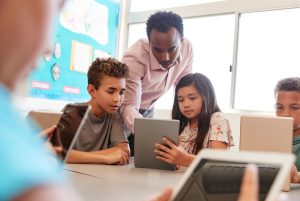
Envıronmental Sustaınabılıty And Educatıon
Course Description
Today’s world includes a range of environmental problems such as depletion of natural resources, air, water and soil pollution, climate change, resource waste, and loss of biodiversity. These problems can lead to the disruption of natural ecosystems, the exacerbation of global issues like climate change, and harmful consequences for human health.
As a result, various risks arise for the future of the world, including:
- Decrease in water resources
- Food security issues
- Natural disasters
- Loss of biodiversity
These problems require governments, private sector, and individuals worldwide to increase awareness of environmental issues and develop solutions. This may involve measures such as investing in renewable energy sources, working towards more sustainable use of resources, reducing waste production and increasing recycling. In this way, a more sustainable world can be created for future generations.
This Erasmus+ course on environmental sustainability and education is aimed at teachers and education staff who want to improve their knowledge and skills in this field and leave a livable world to future generations. With this course, you will have the opportunity to learn what environmental sustainability is, its basic concepts, how it affects people, what it means for the future, what can be done in education, what innovative approaches are, and see sample schools and classrooms.
As an educator, environmental sustainability education can provide many benefits for our students, including better understanding of the environment, a more sensitive approach to the environment, sustainable lifestyles, innovation, and new applications. This way, we can fulfill our responsibility and contribute to a livable future.
LEARNING OUTCOMES
- Understand the causes, effects, and key concepts of environmental problems and global sustainability
- Develop sensitivity and responsibility towards environmental issues and make their own behavior and lifestyles more sustainable
- Gain knowledge of sustainability strategies, technologies, and practices
- Learn about innovative solutions and development skills
- Develop effective communication skills on sustainability-related issues
- Increase awareness of environmental sustainability
- Propose new and effective ways to solve or reduce environmental problems
- Develop a sense of social responsibility towards environmental issues and take action to create change in society
- Acquire knowledge of environmental management and develop skills to manage sustainable environmental projects.
Daily training activities program:
1st day
- Introduction and goal setting with the teachers participating in the course
- Presentations of the participants’ schools
- Providing information about the definition and importance of environmental sustainability and global environmental problems
- Discussion of pedagogical approaches that can be used for environmental education
2nd day
- Explaining concepts such as ecological footprint, carbon footprint, water footprint and presenting activities that will enable students to understand these concepts.
- Providing information on sustainable consumption and production and exchanging ideas on how to increase students’ awareness on this issue.
3rd day
- Suggestions for solutions to environmental problems and promotion of green technologies
- Presenting examples and exemplary projects for the development of projects that will encourage students to contribute to environmental sustainability.
4th day
- Promotion of various materials that provide information on environmental sustainability.
- Using different learning strategies to get students interested in environmental issues.
- Exchange of ideas on how teachers can apply the knowledge they have learned in the lesson in their classrooms and design in-class activities.
5th day
- Course evaluation: discussion and evaluation of acquired competencies, feedback, and course content
- Sharing course documents and records
- Issuance of Course Participation Certificate
Follow-up
Trainees will be provided with printed and hard copies of all course materials that they can present to their colleagues in their organization to spark interest in the strategies learned during the training course. In addition, a mailing list of participants will be created to exchange ideas/experiences. Self-assessment materials will be provided. At the end of the course, participants will fill out a questionnaire to get detailed feedback on the effectiveness of the training event.
Course Info
- Duration: 5 Days
- Location: Antalya
- Cost: €80-Day
- Certificate: Yes
- Prerequisites: No











